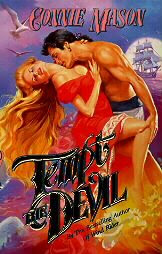 Title: Genuine Lies
Title: Genuine LiesAuthor: Nora Roberts
Publisher: Bantam Books
Genre/Subgenre: Bildungsroman/Contemporary Romance
Part of a Series? No
My first Nora Roberts novel...truly a milestone.
In "Who's Afraid of Happy Endings?" there's a clip of Nora Roberts describing an encounter with a woman who, upon learning Roberts' identity, said "Oh, you write that smut." Nora's response? "No, I do not write smut. What the hell is wrong with you?"
My instant response was to think Lady, lighten up -- how can you write romance and still be that easily offended? My response now, after reading one of her novels, is...yeah, she's still too easily offended, but she really doesn't write smut. After reading Genuine Lies I'm not convinced she even writes romance, at least not in the sense that I attribute to the term. Sure, there is a love story in the novel, but it seemed peripheral to the description of the life of an arrogant, beautiful, ambitious, high-profile woman in a glitzy, high-profile world. In this way, it reminded me of books I've read by Judith Krantz. In my opinion, Genuine Lies is really more of a bildungroman than an actual romance, since it focuses more on the development of the woman than on the relationship itself. Maybe it could be considered a kind of feminist, empowered romance, in that it is truly all about the woman.
That being said, it was a good book. It was very well-written. The plot was tight and intricate. The characters were okay. Well, they might have been a little flat. In fact, the weird thing about Genuine Lies is that it is so good, and yet so flat. Something about it seems ready-made, mass produced, and this is a criticism of Roberts' books that I've heard before. I just finished it, and the major emotion I'm feeling is indifference.




